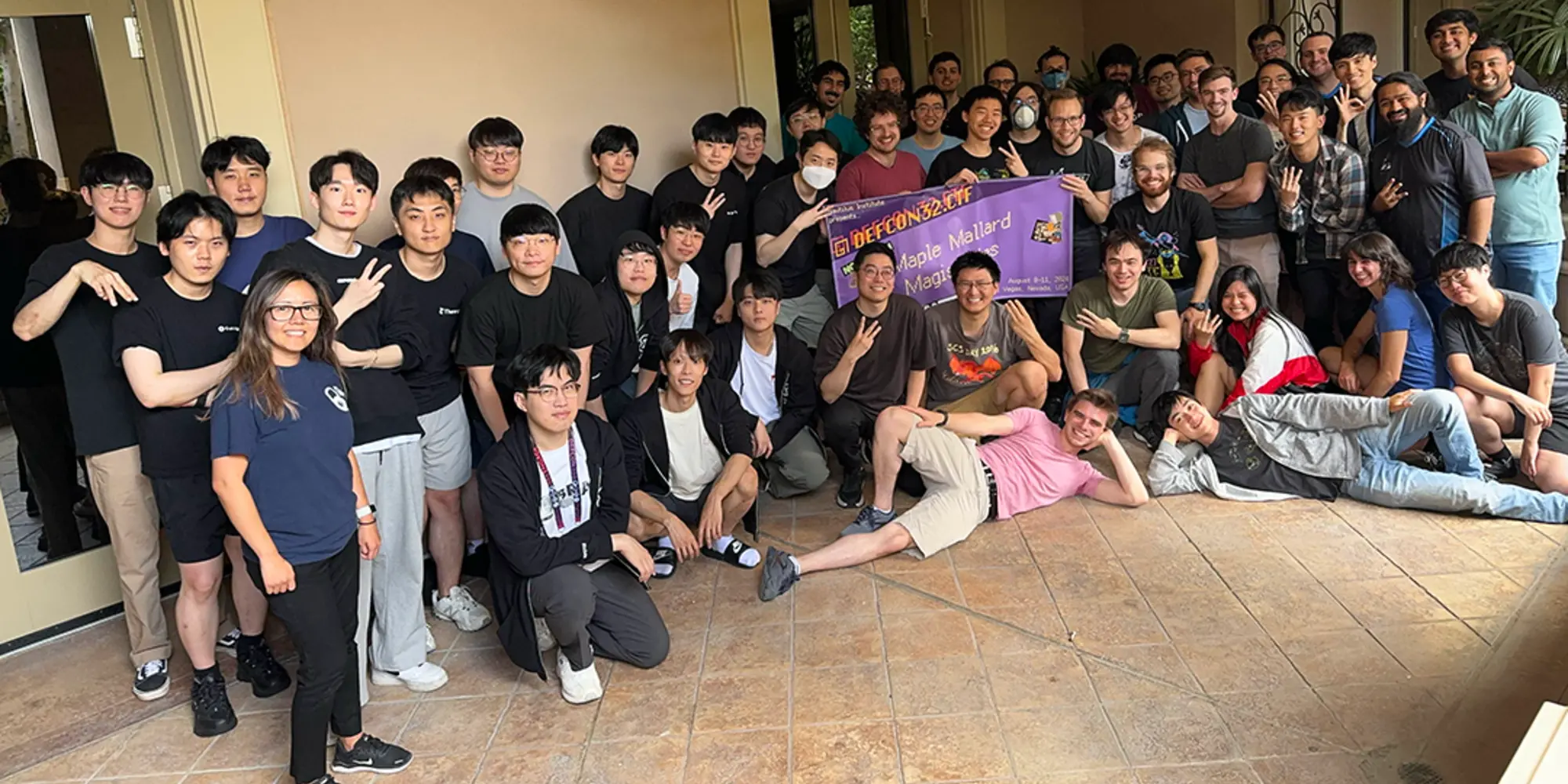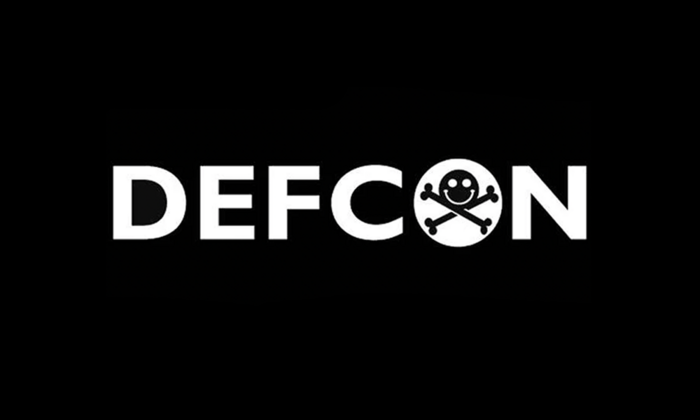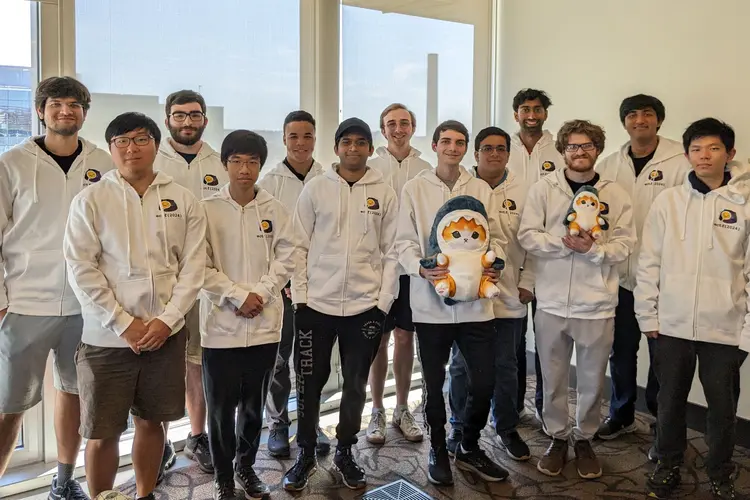
Carnegie Mellon’s Hacking Team Wins Third Straight, Record Eighth Overall DEF CON Capture the Flag Title
Media Inquiries
The winningest team in DEF CON’s(opens in new window)(opens in new window) Capture the Flag (CTF) competition history, Carnegie Mellon University's Plaid Parliament of Pwning (PPP), won its third consecutive title, earning its eighth victory in the past 12 years.
PPP joined forces with CMU alumus and University of British Columbia(opens in new window) Professor Robert Xiao's team, Maple Bacon, and hackers from CMU alumni startup Theori(opens in new window) (The Duck), playing under the name Maple Mallard Magistrates (MMM).
DEF CON’s three-day flagship competition, widely considered the “Olympics” of hacking, brought together some of the world’s most talented cybersecurity professionals, researchers and students, as 12 of the world’s top teams (who qualified from a field of 1,742 teams) attempted to break each other’s systems, stealing virtual flags and accumulating points while simultaneously protecting their own systems.
As the number of cybersecurity attacks continues to increase worldwide, competitions like DEF CON’s Capture the Flag provide the opportunity for leading cybersecurity engineers to measure up against one another, learning and developing new techniques as they work through various challenges.
Carnegie Mellon students, faculty, and alumni overcame some early adversity in the competition, finishing in third place on the leaderboard at the end of day one and moving up to second place on day two before pulling away from its closest challengers in the competition's final hours to secure the victory. For the win, the team earned eight black badges, the most elite recognition in hacking.
“It was exciting,” said Ethan Oh, PPP's team captain for DEF CON Capture-the-Flag and a recent master’s alumnus from Carnegie Mellon's Department of Electrical and Computer Engineering(opens in new window). “It was mildly worrying after the first day, but we kept climbing up. After the official portion of the contest ended each day, we quickly identified what needed to be done and who should work on what in order to win.”
PPP was first formed in 2009 and began competing at DEF CON in 2010. The team’s previous wins came in 2013, 2014, 2016, 2017, 2019, 2022 and 2023, with second-place finishes in 2015, 2018, 2020 and 2021. The team runs and competes in several cybersecurity competitions each year and recently won its third straight title(opens in new window)(opens in new window) at the MITRE embedded Capture the Flag(opens in new window) event (eCTF).
“Our team’s hard work really pays off,” said Jay Bosamiya, former PPP captain and Ph.D. alumnus of Carnegie Mellon's Computer Science Department(opens in new window). “Our secret to effective communication within the team is that we are a group of friends who love to hang out with each other, even outside of CTFs.”
Members of PPP contribute as problem writers to Carnegie Mellon University’s annual student-focused hacking competition, picoCTF(opens in new window), developing challenges of varying levels of complexity. picoCTF has long been the go-to CTF for middle and high school students looking to build and hone their cybersecurity skills, and in recent years has expanded to include an undergraduate leaderboard, as well as several country and continent-specific leaderboards.
Home to the CyLab Security and Privacy Institute(opens in new window), U.S. News and World Report’s top-ranked undergraduate cybersecurity program(opens in new window), and several world-class graduate programs and courses, Carnegie Mellon University continues to lead the way in cybersecurity education and research.



